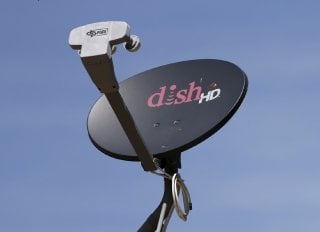5 Reasons Dish Network Is Dying a Brutal Death
Even as cord-cutting has accelerated in recent years, satellite TV has declined even further. The two major satellite companies, DirecTV and Dish Network, have been steadily bleeding subscribers for years. Dish Network lost another 230,000 pay-TV subscribers in the first quarter of 2021.
Even as cord-cutting has accelerated in recent years, satellite TV has declined even further. The two major satellite companies, DirecTV and Dish Network, have been steadily bleeding subscribers for years. Dish Network lost another 230,000 pay-TV subscribers in the first quarter of 2021, including 8.69 million for the Dish TV service and 2.37 million for Sling TV. Dish even raised prices at the end of 2020.
Some reasons why Dish’s TV service has declined:
Stiffer competition. As time as passed, more and more options have become available for accessing entertainment, including streaming services, vMVPDs, and others. Those other options have risen, to some degree at the Dish service’s expense.
Less of a need in rural areas. One analyst recently noticed that not only is he seeing further satellite dishes around, but that government efforts to improve broadband in rural areas is likely to rob the satellite companies of a major source of their business.
“Selling TV to customers with poor broadband is still the sweet spot for the two companies. As the number of homes with good broadband rises, the prospects for satellite TV sinks,” Doug Dawson of CGC Consulting wrote.
Dish is doing other things. Dish has been diversifying for a while, including with Sling TV, which was one of the first vMVPDs. In 2020, it acquired Boost Mobile, as part of what was characterized as a company pivot towards 5G. The deal was made as part of the Sprint/T-Mobile, in which that combined company was required by the government to divest itself of Boost.
Blackouts. Last fall, Dish Network had a dispute with Nexstar, which was the largest of its kind in history, caused Dish subscribers to lose access to more than 160 local channels for three weeks. This likely led some number of consumers to drop the service, or to sour on Dish, just as a dispute at the same time between DirecTV and Tegna likely hurt Dish’s rival. While this is by no means a problem only for the satellite companies, but the semi-frequency of carriage disputes has been a frequent source of discontent for pay-TV customers of late.
A merger, not so “inevitable.” Charlie Ergen, Dish’s chairman, has stated on various occasions that a merger between Dish and DirecTV is “inevitable.” The two companies have had a couple of near-mergers over the years. But AT&T sold off a stake in DirecTV last year to form a new company without Dish ever getting seriously involved in the bidding, and there were indications last year that government regulators would be unlikely to approve such a merger.
Stephen Silver, a technology writer for The National Interest, is a journalist, essayist and film critic, who is also a contributor to The Philadelphia Inquirer, Philly Voice, Philadelphia Weekly, the Jewish Telegraphic Agency, Living Life Fearless, Backstage magazine, Broad Street Review and Splice Today. The co-founder of the Philadelphia Film Critics Circle, Stephen lives in suburban Philadelphia with his wife and two sons. Follow him on Twitter at @StephenSilver.

